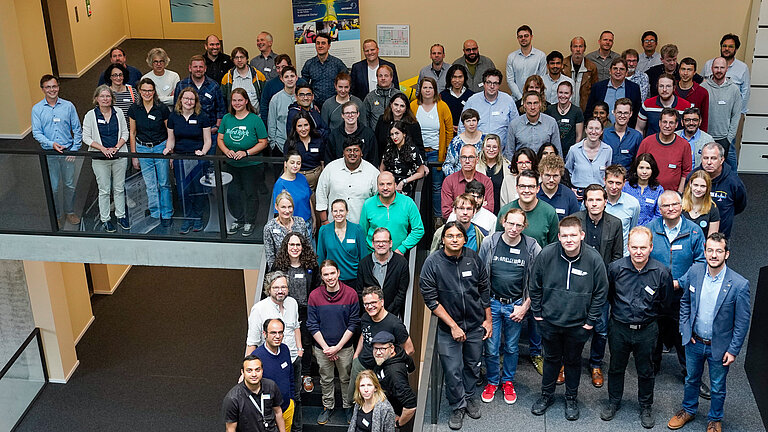The requirements for high-quality research data in focus
Helmholtz Metadata Collaboration (HMC) discussed at GEOMAR about future challenges and developments of the Helmholtz-wide data infrastructure
Research generates data - more than ever before. In order to make this data accessible and usable not just for a handful of researchers, but for the entire scientific community across institutes and disciplines, the research data must be linked with additional data, so-called metadata. This metadata must comply with standardised specifications, ideally international standards, in order to be effectively usable. It must also be ‘FAIR’: Findable, Accessible, Interoperable and Reusable. This means that data should be prepared in such a way that it can be easily found and used, combined with other data sets, exchanged and interpreted. The platform therefore also sets national metadata standards, which also help to shape European and global specifications.
With the increasing production of research data, the question of the description and documentation of research data that should be sustainably visible and usable for humans and machines is becoming more and more important. Every discipline - from healthcare to energy - faces different challenges here. The Helmholtz Metadata Collaboration (HMC) is therefore active in all six research fields of the Helmholtz Association in order to develop both discipline-specific and overarching solutions. These can range from the use of controlled vocabularies and the development of metadata tools for researchers and software developers to the organisation of metadata training courses.
The vision of a joint and comprehensive Helmholtz data room has thus already been realised in the first steps. Other solutions were discussed at the summer meeting and some of them can already be utilised. For example, the Helmholtz Knowledge Graph is a central resource that brings together metadata from data providers such as repositories and libraries from the entire Helmholtz Association. The datasets can already be searched and the programme service will be further expanded and improved in the future. HMC projects were also presented, including initial results from the ‘Stamplate’ project, which is building a networked research data infrastructure for time series in the field of environmental sciences.
‘The HMC summer meeting at GEOMAR was a great opportunity to get to know the variety of programmes, projects and, of course, the people behind them - for the first time on this size. The quality of the contributions at the meeting showed that we rightly have the perspective to develop HMC for another five years,’ says Sören Lorenz, HMC spokesperson and Chief Information Officer (CIO) and Head of the Information, Data and Computing Centre at GEOMAR.
Background: HMC
The Helmholtz Metadata Collaboration (HMC) is a platform that promotes the qualitative enrichment of research data by means of metadata. Its main goal is to make the research data produced by the Helmholtz Centres findable, accessible, interoperable and reusable (FAIR) for the entire scientific community (within Helmholtz and beyond). In addition, the HMC is working on a Helmholtz Data Space that will enable scientists to seamlessly share and reuse their data.

90 participants took part in the largest meeting of the Helmholtz Metadata Collaboration (HMC) to date. Photo: Julia Gehringer, GEOMAR


